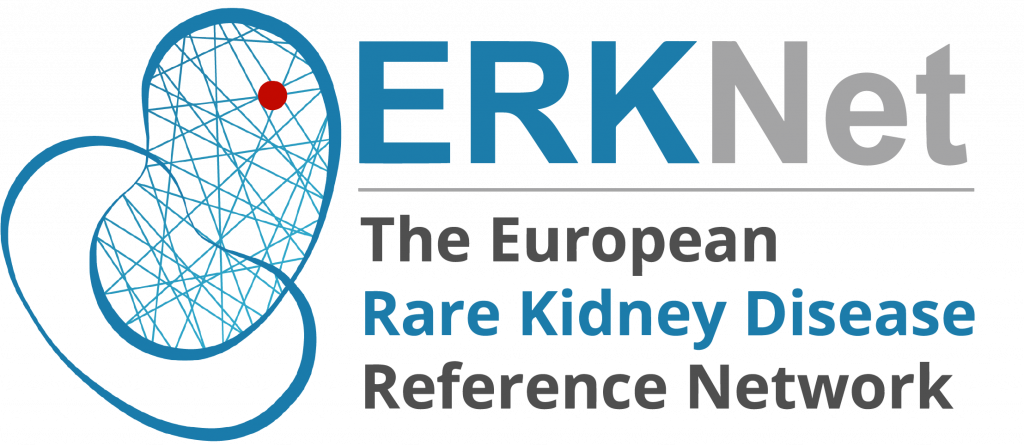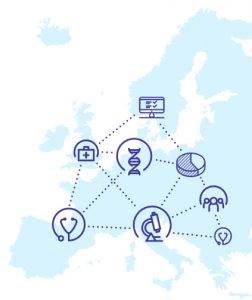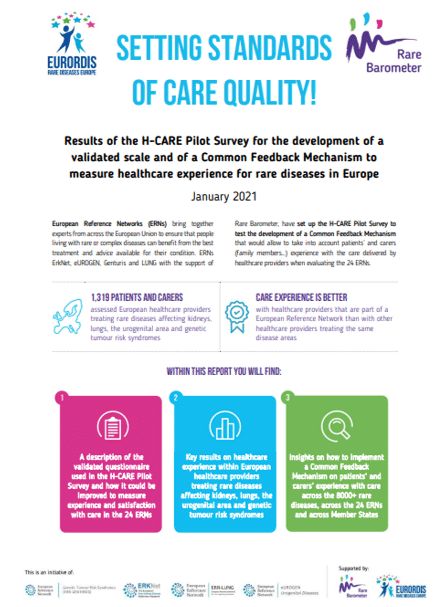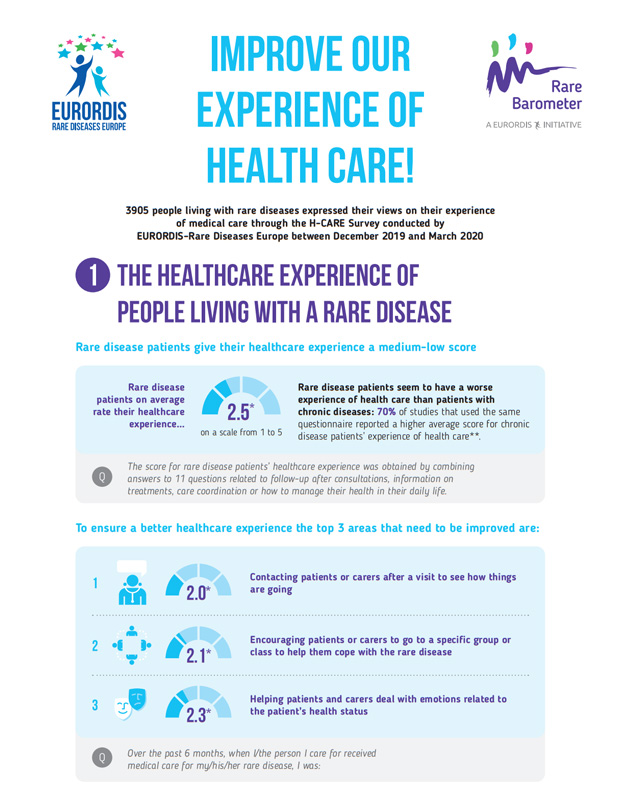Based on over 3900 submissions received between December 2019 and March 2020, results of the H-CARE Pilot Survey show that people with rare diseases give their healthcare experience a medium-low rating [1], outline the major gaps in healthcare delivery and allow to provide recommendations for future reform.
According to the respondents, healthcare services for rare and complex conditions only occasionally consider key aspects, such as follow-up consultations and appropriate psychological and social support. The H-CARE survey findings indicate that there is still plenty of room for improvement and redesign of health and social services to meet the needs of people living with a rare or complex condition in Europe.
Moreover, the results show that patients living with a rare disease have a worse healthcare experience than other patients affected by chronic diseases. While both require multidisciplinary care and have broadly similar needs, patients with rare diseases seem to have a harder time accessing care that meets their needs.
Among the three priority areas for improvement, the respondents indicated the need for follow-up consultations, more orientation on resources and support, and psychological assistance. Timely follow-up is vital to ensure that the patient is aware of his or her diagnosis and moves forward with the prescribed treatment plan. Still to this day, many people living with a rare disease feel left alone with their concerns. Orienting patients towards community support groups, alongside adequate psychological and emotional help, emerges as a key factor in ensuring a better healthcare experience.
In order to support patients and carers, experts should also improve coordination with other doctors and provide recommendations to patients on how to manage the disease in their daily life, for instance by setting specific goals or developing disease management programmes.
The results of this survey confirm that there is still work to be done to improve the healthcare experience of people living with a rare or complex condition. From providing appropriate psychological support and ensuring better care coordination to signposting to support groups. We invite healthcare providers, clinicians and hospital managers, and health and social care authorities to analyse the results, extract lessons, and use them to inform future service redesign and policy interventions.
Inés Hernando, ERN and Healthcare Director
[1] H-CARE obtained the score for rare disease patients’ healthcare experience by combining answers to 11 questions related to follow-up after consultations, information on treatments, care coordination, and managing patients’ health in their daily lives.






 Literature review
Literature review
